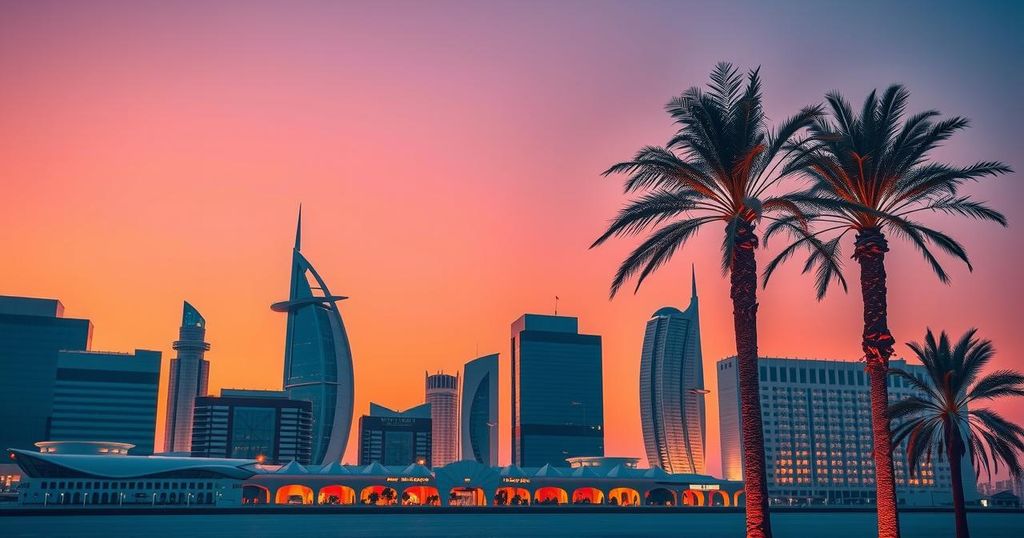Saudi Arabia is hosting a summit featuring top officials from the U.S. and Ukraine as part of its efforts to enhance its global diplomatic role. Under Crown Prince Mohammed bin Salman, the kingdom is rebranding itself away from its past critiques, although its human rights record continues to face scrutiny. Analysts suggest that Saudi Arabia is establishing itself as a significant player in international relations, aiming to foster dialogue on pressing global conflicts.
Saudi Arabia is poised to host a significant summit featuring U.S. Secretary of State Marco Rubio and Ukrainian President Volodymyr Zelenskyy. This event marks an effort to mend ties with Washington following a previous diplomatic encounter that ended poorly. Saudi Arabia has successfully developed its image as an effective diplomatic intermediary, facilitating discussions on various global issues, including the Ukraine conflict and the future of Gaza.
In recent years, Saudi Arabia has focused on rebranding under the leadership of Crown Prince Mohammed bin Salman (MBS). Once viewed predominantly as a conservative monarchy with a troubled reputation, the kingdom is now striving to be recognized as a diplomatic leader, especially following past criticisms from figures like President Joe Biden. Despite the reforms initiated by MBS, human rights organizations continue to express grave concerns regarding the kingdom’s human rights record.
Analysts have noted that Saudi Arabia has become more active on the global stage, indicating its transition into a more prominent role in international diplomacy. As Thomas Lippman from the Middle East Institute stated, this era represents a new, more educated, and open Saudi Arabian identity. The kingdom’s engagement has been bolstered by benefitting from high-profile visits, including by former President Trump, who plans to visit Saudi Arabia during his next term as part of a substantial investment agreement.
Saudi mediation efforts extend beyond U.S. relations, including hosting negotiations involving Russia and organizing discussions among Arab leaders regarding significant regional initiatives. As F. Gregory Gause III pointed out, Saudi Arabia is aiming to position itself as a major alternative venue for international dialogues, rivaling traditional diplomatic hubs like Geneva and Vienna.
Vision 2030 is another cornerstone of MBS’s strategy, aiming to diversify the Saudi economy beyond oil by investing in infrastructure and entertainment. The kingdom has also become a prominent site for various sports and entertainment events, significantly altering its global image. As expressed by Karen Young, Saudi Arabia is transforming into a non-aligned state with vast resources capable of impacting global economic dynamics.
President Joe Biden’s evolving relationship with Crown Prince Mohammed bin Salman reflects a shift from condemnation to limited engagement, as both leaders acknowledge ongoing human rights concerns. Reforms have included granting more freedoms to women, although significant abuses persist, as highlighted in a recent State Department report. As reported, while improvements may be visible, systematic rights violations remain a critical issue.
Despite Saudi Arabia’s advancements, the kingdom faces scrutiny regarding its human rights policies. Diplomats now often engage with the kingdom similarly to their dealings with China, recognizing its complex nature as both an authoritarian regime and essential global participant. This nuanced relationship underscores the challenges and opportunities inherent in Saudi Arabia’s emerging diplomatic role.
In summary, Saudi Arabia seeks to redefine its global image through diplomatic engagements and significant reforms under Crown Prince Mohammed bin Salman. The kingdom aims to emerge as a key power broker, focusing on international negotiations while grappling with ongoing human rights criticisms. Despite visible progress in certain areas, significant challenges remain, reflecting the complexities of its role on the world stage.
Original Source: www.nbcnews.com




